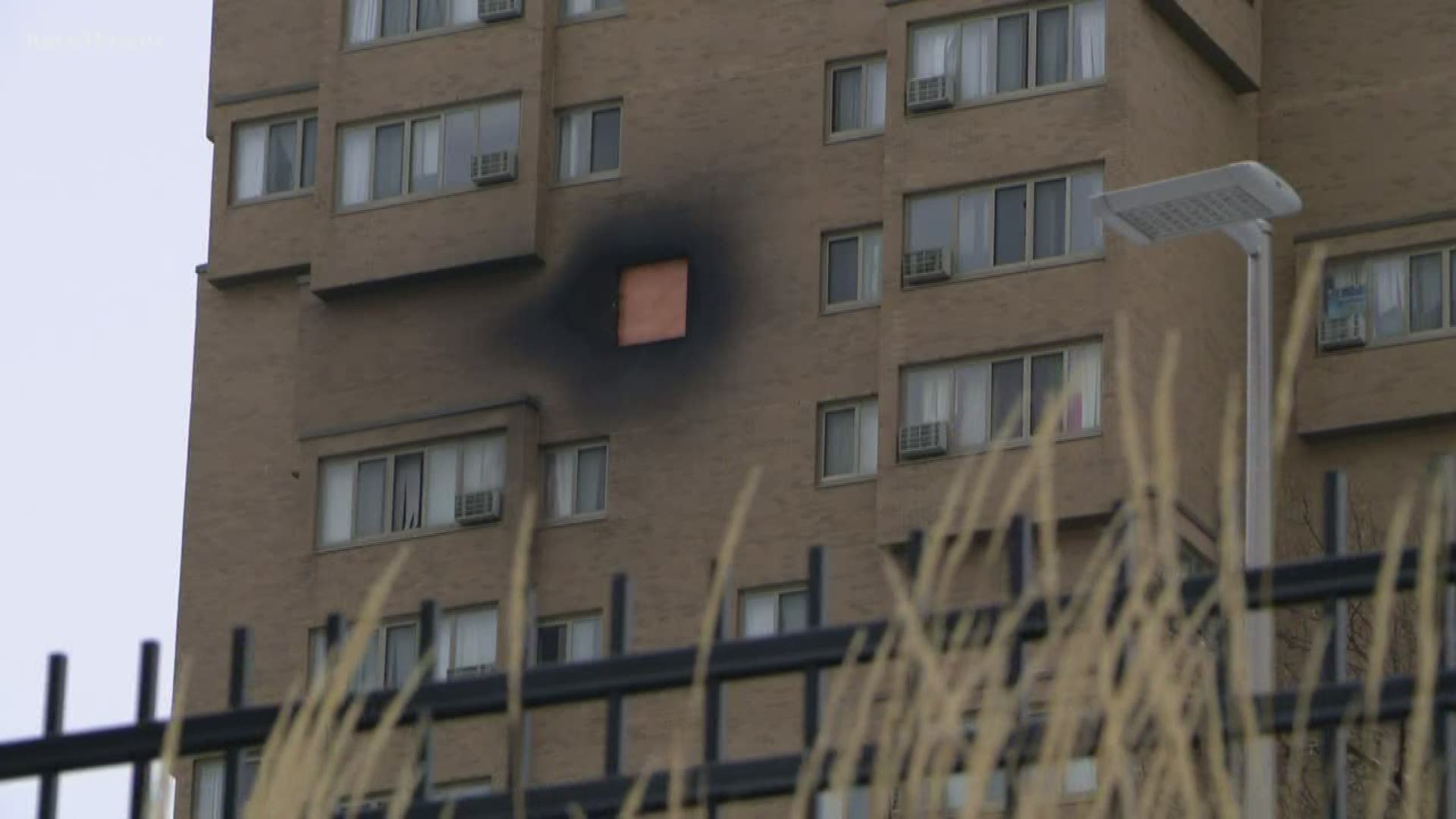MINNEAPOLIS — State and federal lawmakers are pressing for answers and dollars in the wake of a Thanksgiving fire that claimed the lives of five residents of a Minneapolis public housing tower.
US Senators Tina Smith and Amy Klobuchar introduced the Public Housing Fire Safety Act, which would set up a grant program to help agencies across the nation pay for retrofitting older high-rise apartment buildings with sprinkler systems.
"In the aftermath of the tragic fire we spoke with public housing authorities and firefighters, the people who really know what's happening here and this is the approach the recommended," Sen. Smith told KARE.
The Senate bill would provide $25 million per year in grants for at least ten years in a competitive grant program. It also calls for the federal government to collect data on the status of sprinkler systems in high-rise public housing buildings in the US.
Smith said the fire is a symptom of a larger issue -- the backlog of deferred maintenance in public housing nationally due to funding gaps.
"In public housing all over the country we have lead problems, mold problems and roofs that are leaking and sometimes even falling in, so this need for sprinklers is part of a much bigger problem and the need to improve these buildings so that they are safe."
Four members of Minnesota's US Housed delegation -- US Reps. Ilhan Omar, Betty McCollum, Dean Phillips and Angie Craig -- have asked the US Dept. of Housing and Urban Development, or HUD, to find out how many public housing complexes are exempted by from the sprinkler laws due to age.
The blaze took place in Rep. Omar's district, in the heart of the Twin Cities Somali community. Omar and her fellow members of Congress have also asked HUD to determine how much it would cost to install sprinklers.
Sprinkler gap
The Thanksgiving fire, which was ruled an accident, broke out on the 14th floor of a 25-story Minneapolis Public Housing complex in the Cedar-Riverside area. That building, which predated mandatory sprinkler laws, has sprinklers only on the entry level and basement mechanical areas.
The state's building code required sprinklers in high-rise buildings built after 1980. The federal government required those automatic fire-suppression devices in all public housing towers beginning in 1992. Most of the public housing towers in the Twin Cities were built well before those rules went into place.
The Minneapolis Public Housing Authority estimated the cost of retrofitting that building at $867,000. Currently, only 16 of the 42 buildings in the MPHA system are equipped with sprinklers.
The Saint Paul Public Housing Agency has sprinklers in all 16 of its high-rise buildings. The agency spent $8.3 million across 22 years retrofitting older buildings with fire-suppression sprinklers and updated alarm systems.
One of them was the Mount Airy High-Rise, built in 1959. Sprinklers were added in 1998. Each apartment unit now has at least six sprinkler heads, located in all the living spaces, kitchens, closets and hallways.
State Efforts
Rep. Mohamud Noor and Sen. Kari Dziedzic represent the neighborhood where the Thanksgiving fire struck. In fact, Noor knew some of the victims and their families before the fire.
"We could have saved the lives of those individuals if we had sprinklers systems working in that unit," Rep. Noor told KARE.
He said the focus now is on finding funding to retrofit public housing units but asserted privately-owned high-rises should also be a concern for lawmakers.
"I know many people are concerned about the costs, but the costs should not be a barrier for us to have retrofit sprinklers in places where they’re going to address the issue of safety for residents and firefighters."
Sen. Dziedzic said an influx of new funding is needed to deal with the sprinkler gap because public housing agencies shouldn't have to choose between finding more housing or paying to upgrade existing facilities.
"It is a catch 22 because you want people to live in safe and affordable housing, but you also need more housing, so it’s literally finding that balance," Dziedzic explained.
"Putting more dollars in -- I think we owe that to people. I mean people’s grandmas are living here and we all want our grandma to live in a safe, affordable place."
Dziedzic said state and local government shouldn't bear the expense alone, and that federal dollars will have to be part of the solution. She noted that the Minneapolis Public Housing Authority already has a sizable backlog of maintenance projects that have been put on hold due to lack of funding.


